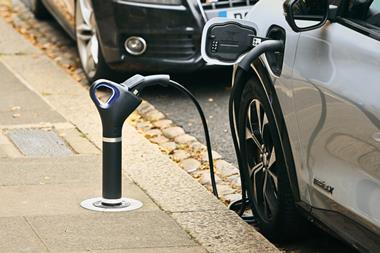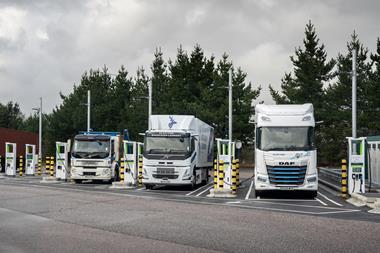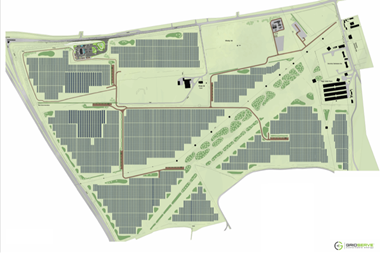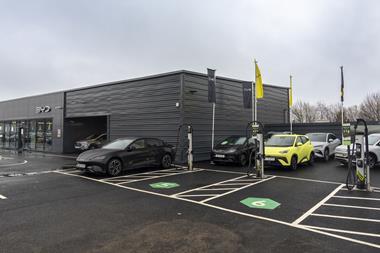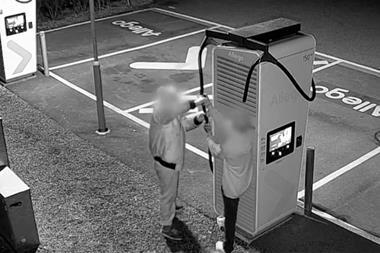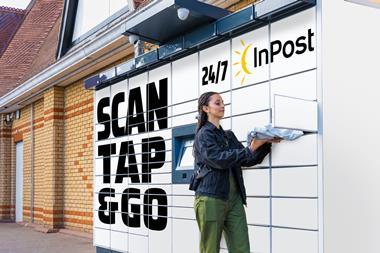- Only 14% of EV drivers say they refrain from taking longer journeys;
- The number of respondents that are travelling to other European countries by EV, and having a good charging experience, has increased by 5%, while reluctance to drive abroad because of charging or range concerns is down 7% and 5% respectively;
- Drivers are becoming more relaxed about when EVs are charged, with 47% of respondents saying that they do not need to charge daily.
- The Shell Recharge EV Driver Survey 2023 is one of the largest European surveys of Electric Vehicle (EV) drivers, revealing the attitudes of almost 25,000 drivers
- Findings suggest a shift from range anxiety to range confidence, with only 14% of EV drivers saying they refrain from taking longer journeys.
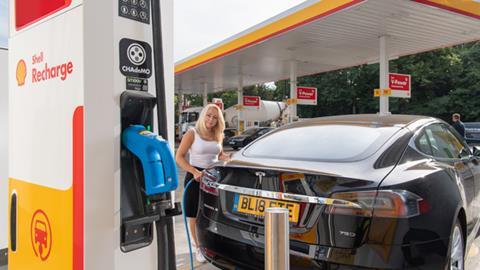
New research commissioned by Shell and conducted by LCP Delta suggests electric vehicle (EV) adoption is accelerating in several key European markets and is having a positive impact on driver perceptions, including range anxiety.
The Shell Recharge EV Driver Survey 2023 claims to be one of the largest research projects into the attitudes and behaviours of European EV drivers. In its sixth consecutive year, the latest report looks at the view of nearly 25,000 drivers across Belgium, France, Germany, Italy, the Netherlands and the UK.
Survey responses were primarily sourced from customers of the Shell Recharge app and card, which provide access to 500,000 charge points across Europe at Shell’s growing EV charging network and through roaming agreements.
According to the report, two fifths (42%) of the respondents have purchased an EV within the past year and over two thirds (67%) within the past two years. The growth is dominated by the new EV vehicle market, with 87% of current EV drivers buying their vehicle in new condition (the equivalent figure for all vehicles in Europe is just 27%).
Shell says the data indicates that real-world EV experience, technology advances and growth in charging infrastructure are having a positive impact on driver attitudes, with only 14% of EV drivers say they refrain from taking longer journeys.
Meanwhile, according to the research, the number of respondents that are travelling to other European countries by EV, and having a good charging experience, has increased 5%, while reluctance to drive abroad because of charging or range concerns is down 7% and 5% respectively.
Drivers are also apparently becoming more relaxed about when EVs are charged, with 47% of respondents saying that they do not need to charge daily.
Florian Glattes, vice president, E-Mobility Solutions at Shell, said: “The EV adoption growth curve is clear from the data, and it is encouraging to see that many of these drivers are feeling positive about the experience. However, if we are to continue accelerating at pace then industry must listen to the needs of drivers and work together to effectively continue removing barriers into entry and further enhance the customer experience.”
One of those demands is a less complex mix of apps and cards in order to access the most value from these services. Nearly a quarter (23%) of drivers have installed four applications to manage and make the most of their EV, and the same figure was quoted for drivers who access public charging infrastructure with four or more charge cards.
However, appetite for a more streamlined and seamless experience is high. In fact, nearly half (47%) of respondents say they would prefer to have a single method of accessing all public charge points even if that means they were to pay slightly more per charge.
The research also found a clear link between EV ownership and broader low-carbon lifestyle commitment, which is extending to a willingness to make adaptations to maximise the benefits of their vehicles. Nearly half (47%) of EV drivers have invested in at-home solar power, while 36% have smart home thermostats.
As a result, two thirds of respondents (66%) say they would like their charge point provider to offer them an EV-specific energy tariff; while 48% say they want smart charging services to be offered as part of their charge point deal, and a third (33%) want devices like solar panels and home batteries included.
John Murray, Head of EVs, LCP Delta commented: “The data showcases that EV drivers are often highly engaged energy consumers who understand and are enthusiastic about the role they can play in managing future energy demands. Interestingly, the survey results indicate that EV drivers are willing to adopt intelligent, smart charging to support balancing of the grid and to maximise renewable energy usage. Together with Shell, we have collected a wealth of data which provides nuanced insight into the charging behaviours of EV drivers across Europe. We hope this will help businesses and innovators adapt to an emerging electric world by creating more personalised solutions that meet the evolving needs of EV drivers and further accelerates the electrification of transport.”
The report outlines several opportunities for businesses to get involved in the charging ecosystem through destination charging. With nearly half (44%) of EV drivers saying they do not have a charge point installed at home, the report suggests these partners can play an important role in supporting increasing demand and enhance the customer experience.
Glattes, continued: “With EV driver numbers growing, it is becoming increasingly clear what drivers want and need to have a great electric experience: speed, reliability, convenience and experience. We are very proud to be collaborating with industry-leading partners across sectors, including automakers and real estate destinations, to improve those four key areas by offering innovative solutions. I believe businesses not only have a significant potential to add value for EV drivers by entering the charging ecosystem, but also a graspable opportunity to boost their bottom lines.”
From the retailer’s perspective this can potentially unlock new revenue streams by attracting new customers and longer dwell times. In fact, nearly half (49%) of EV drivers already say they choose where to shop and travel based on the availability of charge points, and 57% said they would visit destinations more frequently if they had charge points.
Shell Recharge says it is raising the standards in public charging by making it faster and easier for customers to use. Through the Shell Recharge app and card offer in Europe, customers can access over 500,000 charge points through its roaming networks across 25 countries.
Shell also collaborates with some of the world’s most recognisable retail brands, such as Waitrose and Rewe, to provide destination charging solutions that make shifting to electric as easy and enjoyable as possible for customers.
To find out more download the Shell Recharge EV Driver Survey 2023.
.





















